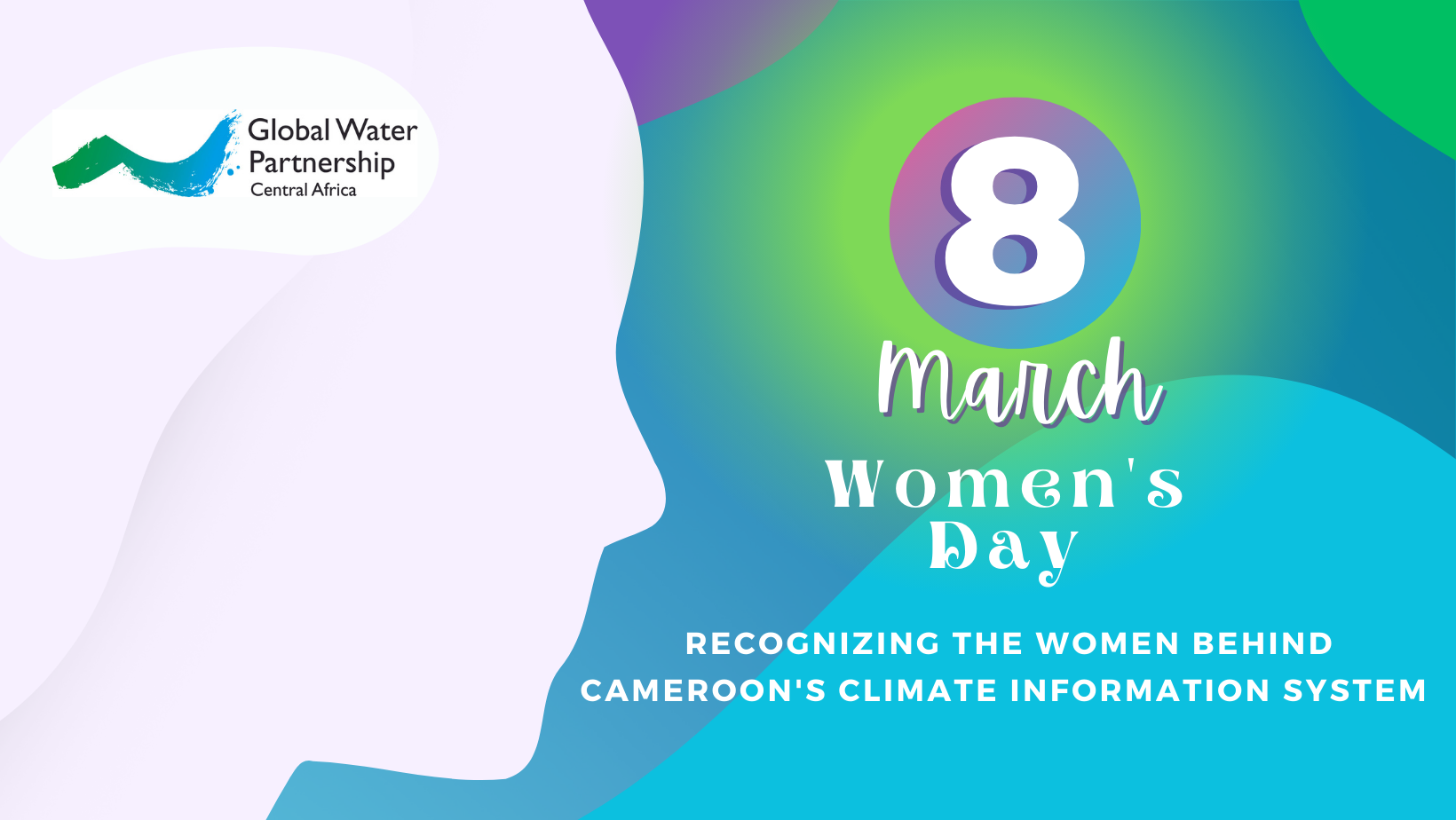In line with this, we sat down with the women of the Department of Meteorology at the Ministry of Transport involved in the transmission, processing and distribution stages of climate and weather information. This information helps improve climate adaptation and reduce the impacts of climate change in the country.
Under the WACDEP-G program, GWP-Cameroon has continued to support the department of Meteorology in its efforts to improve access and use of the climate information in the Far North of the country which is hardest hit by the effects of climate change.
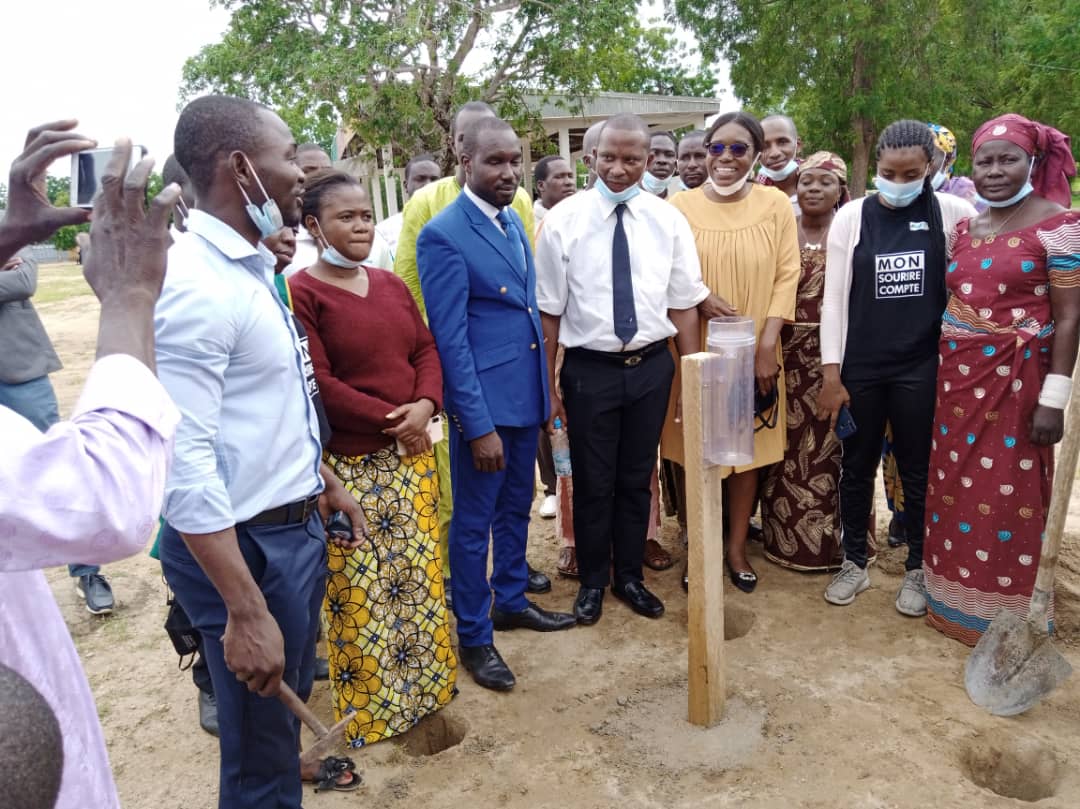
1. What exactly is your role?
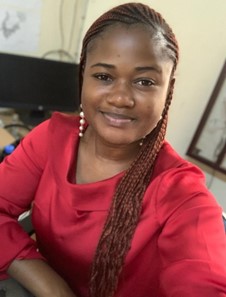
NGO MBII Maeva
Head of the Agro-meteorology and Atmospheric Environment Service
Maeva: I oversee the provision of meteorological assistance at the rural level. This is done through the production and dissemination of agrometeorological information to rural administrations, media (print and radio), farmers, breeders, agro-industrial companies, etc. To do this, we collaborate with different entities to facilitate the elaboration and distribution of the said information.
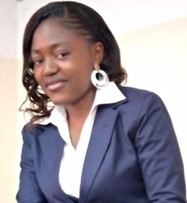 GUEMDJOE TAKAM Merveille
GUEMDJOE TAKAM Merveille
Meteorological Engineer
Manager , National Meteorological Department of the Ministry of Transport (Climatology and Data Bank Department)
Merveille: My role in the Climatology and Data Bank Department is not only to prepare the monthly climate forecast bulletin of rainfall and temperature in the Cameroonian territory, but also to carry out the administrative tasks of the Department, such as the processing of files related to the request for meteorological data.
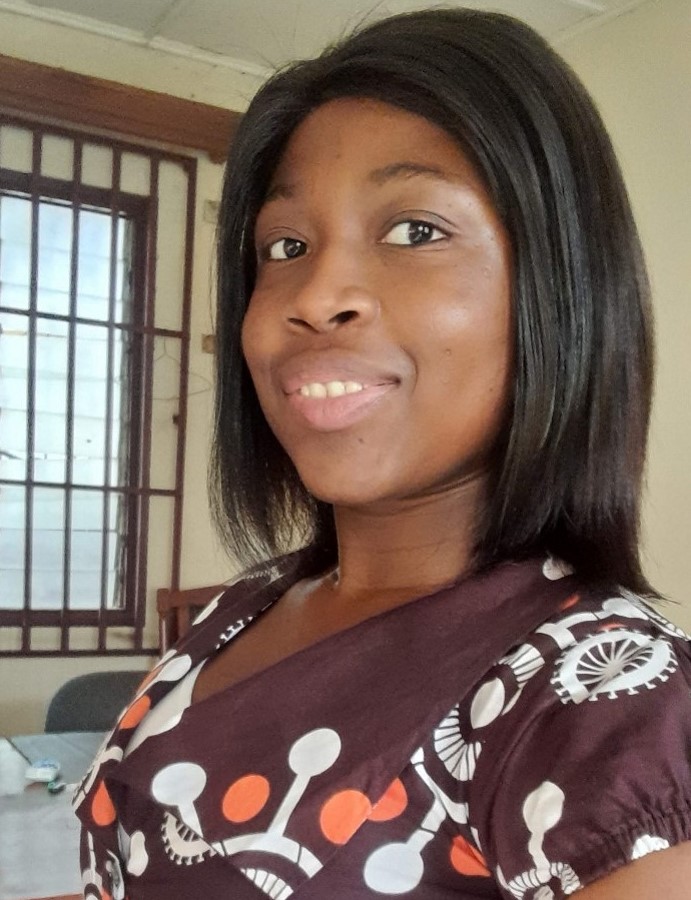
MELIE TIOMELA Serena
Head of the Meteorological Data Centralization and Transmission Service
Melie: To be able to elaborate weather forecasts, it is necessary to have past and current weather observations on the area for which the forecast is to be elaborated. For this purpose I am in charge of centralizing the meteorological data observed and collected every day in the meteorological stations at national level, and their transmission to the specialized international network. These meteorological observations include the state of the atmosphere in terms of temperature, humidity, winds, cloud cover and others.
2. In your opinion, do you think it is important to involve women in the production and dissemination of weather and climate information? If so, why?
Maeva: Of course, it is important to involve women at all stages of the process of elaboration and dissemination of meteorological information because it is a resource in society. Moreover, during our field work to distribute this information, we’ve learned from the farmers and found out too that women more capable of sharing information and using it because they oversee the well-being of their households.
Merveille: Of course, women are more sensitive, better organized, and creative. To make forecasts, it is vital to organize analyses correctly. Creativity equals innovation and innovation is very important in the field of weather forecasting. This is evident in the delivery of forecasts and the aesthetics of the climate bulletin template (is it catchy, does it make you want to read?)
Melie: I think it is important, even necessary. According to principle 20 of the Rio Declaration on Environment and Development, women have an important role to play in guiding our societies towards sustainable development. They are particularly sensitive to their environment and society, which makes them indispensable. Personally, in my work experience with young female meteorologists, it is generally very pleasant because they are very courteous and open.
3. As a woman, what are the most significant challenges you face in your role?
Maeva: I’m in need of capacity building to help me overcome some challenges that have to do with the technicality of the job. Lack of funds to implement planned activities is also a challenge. We know that women in our societies must be at a certain level earn more recognition.
Merveille: The challenge here is work-life balance. The more you excel in your career the less time you have for family.
4. If you had to choose again, would you still be in this field? If so, why?
Maeva: I would not change it for the world! I am especially passionate about women's well-being. Today, climate variations are evident in the empty food markets with people struggling feed. The weather information that the Meteorological Department produces and provides strengthens food security, fights against poverty, and allow women to save time and improve their standard of living.
Merveille: I am passionate about my job. It is one of the sources for my fulfilment. My dream is to be an expert in the field of forecasting extreme events of meteorological origin, to mitigate, or even eliminate loss of human lives and property.
5. On the occasion of International Women's Day, what advice would you give to women who wish to pursue a career in your field of work?
Maeva: This a field which requires you to have honourable ambitions. It is not an opportunity to get rich quick but to improve the lives of men, women, and children. It also requires willpower, courage, and audacity. It is a very little-known field and with a low representation of women in Central Africa. In Cameroon, we are pioneers in this discipline as women.
Merveille: If you are passionate about something, you don't give up, you don't get discouraged, no matter what the obstacles are. It's good to work, to have a job, but it's even better to be fulfilled in everything you do. So go after your dreams!
Melie: Be focused and determined
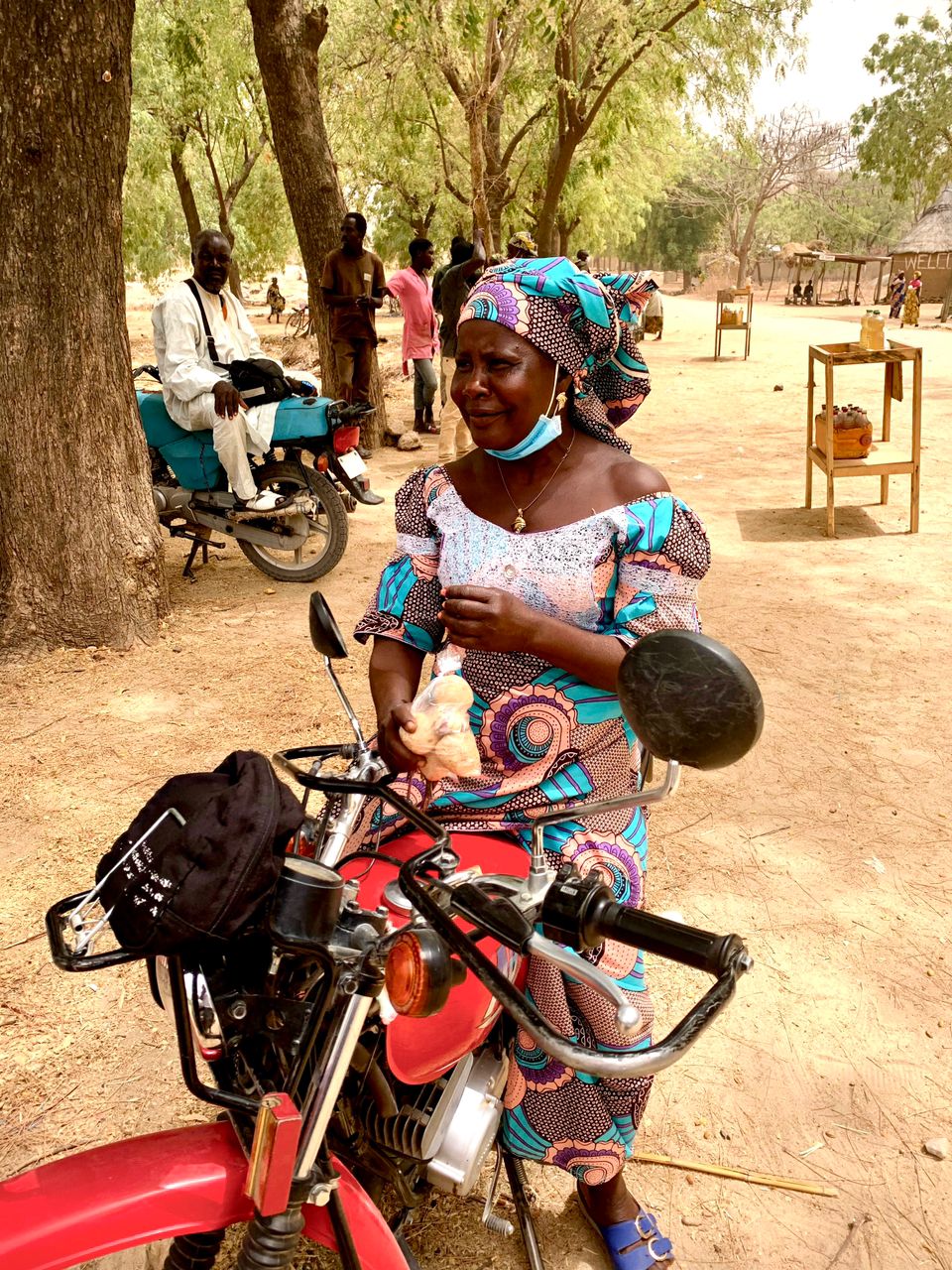
Mama Veronique Diassar
Focal Point, Local Rain gauge station (Méri, Far North Region)
Mama Veronique as she is fondly called, is a female leader in her village, Méri in the Far North Region , Cameroon. She’s also a focal point for GWP activities within the region. She is the only female focal point in charge of one of the rain gauge stations, installed by the department of Meteorology in Méri. She was one of the beneficiaries of a capacity-building training on weather, climate, and the environment by the Ministry of Transport in Collaboration with OMM and GWP-Cameroon.
1. So, what exactly do you do as the focal point of a rain gauge station?
Mama Veronique: Every morning, during the rainy season, I note down the quantity of rain in the rain gauge and use the telephone provided to me by the department pf meteorology to send the information to the regional office of the Ministry of Transport. From there, the information is sent to the head office of the ministry for processing, interpretation and insertion into the climate bulletin which is sent back to us to help reduce the effects of climate change on our main economic activity, agriculture.
What has been most fulfilling about being a part of this process?
Mama Veronique: I am happy to help my community develop and reduce the disasters we experience due to climate change. One time, we had to plant maize twice because the first time, there was no rain to fertilize the seeds. Now thanks to the climate bulletin, we can plan better. Also, I trained a woman in my community on how to read rain gauge data. She steps in for me when I’m away. It’s fulfilling to share the knowledge I acquired.
Happy International Women's Day!
